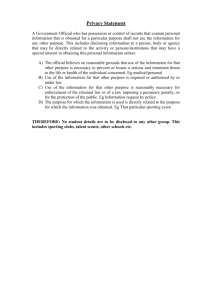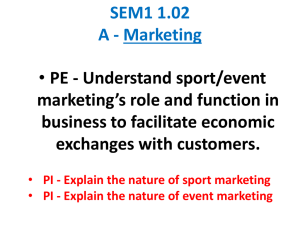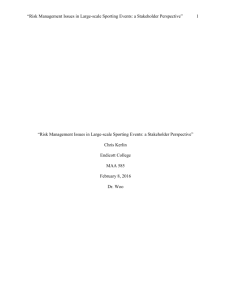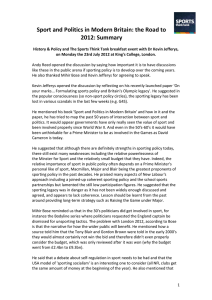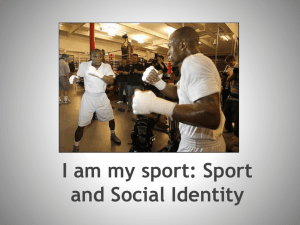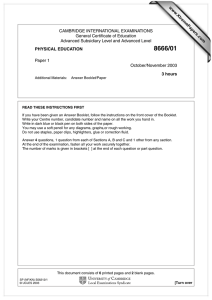Stakeholders in Sport
advertisement
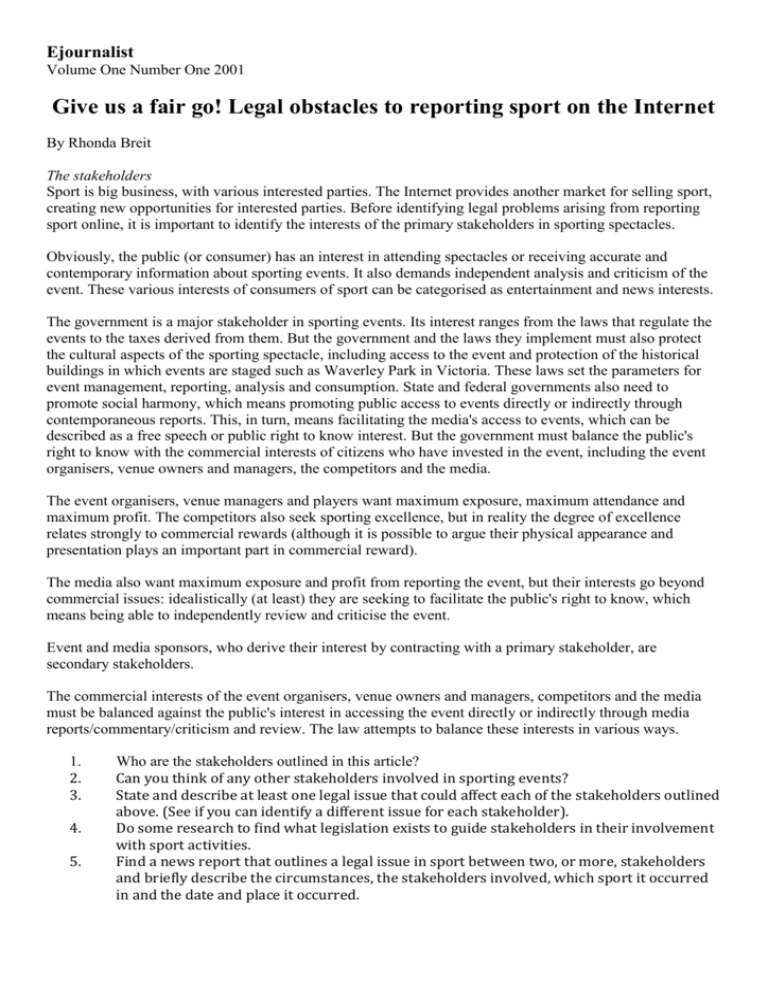
Ejournalist Volume One Number One 2001 Give us a fair go! Legal obstacles to reporting sport on the Internet By Rhonda Breit The stakeholders Sport is big business, with various interested parties. The Internet provides another market for selling sport, creating new opportunities for interested parties. Before identifying legal problems arising from reporting sport online, it is important to identify the interests of the primary stakeholders in sporting spectacles. Obviously, the public (or consumer) has an interest in attending spectacles or receiving accurate and contemporary information about sporting events. It also demands independent analysis and criticism of the event. These various interests of consumers of sport can be categorised as entertainment and news interests. The government is a major stakeholder in sporting events. Its interest ranges from the laws that regulate the events to the taxes derived from them. But the government and the laws they implement must also protect the cultural aspects of the sporting spectacle, including access to the event and protection of the historical buildings in which events are staged such as Waverley Park in Victoria. These laws set the parameters for event management, reporting, analysis and consumption. State and federal governments also need to promote social harmony, which means promoting public access to events directly or indirectly through contemporaneous reports. This, in turn, means facilitating the media's access to events, which can be described as a free speech or public right to know interest. But the government must balance the public's right to know with the commercial interests of citizens who have invested in the event, including the event organisers, venue owners and managers, the competitors and the media. The event organisers, venue managers and players want maximum exposure, maximum attendance and maximum profit. The competitors also seek sporting excellence, but in reality the degree of excellence relates strongly to commercial rewards (although it is possible to argue their physical appearance and presentation plays an important part in commercial reward). The media also want maximum exposure and profit from reporting the event, but their interests go beyond commercial issues: idealistically (at least) they are seeking to facilitate the public's right to know, which means being able to independently review and criticise the event. Event and media sponsors, who derive their interest by contracting with a primary stakeholder, are secondary stakeholders. The commercial interests of the event organisers, venue owners and managers, competitors and the media must be balanced against the public's interest in accessing the event directly or indirectly through media reports/commentary/criticism and review. The law attempts to balance these interests in various ways. 1. 2. 3. 4. 5. Who are the stakeholders outlined in this article? Can you think of any other stakeholders involved in sporting events? State and describe at least one legal issue that could affect each of the stakeholders outlined above. (See if you can identify a different issue for each stakeholder). Do some research to find what legislation exists to guide stakeholders in their involvement with sport activities. Find a news report that outlines a legal issue in sport between two, or more, stakeholders and briefly describe the circumstances, the stakeholders involved, which sport it occurred in and the date and place it occurred.



